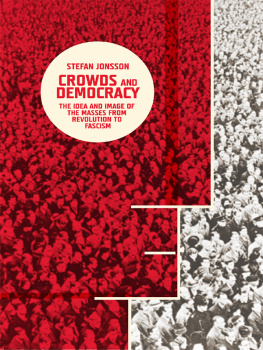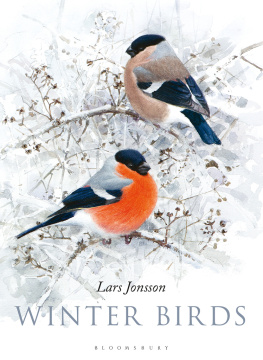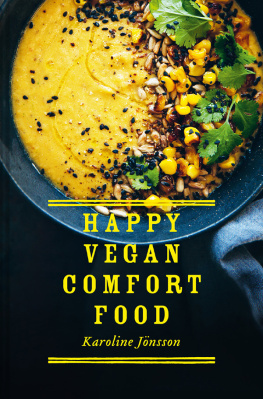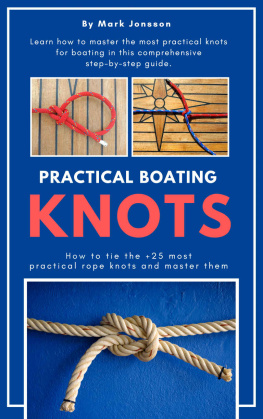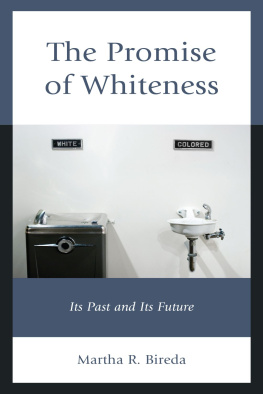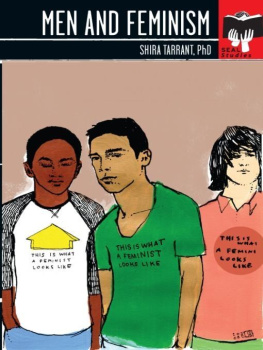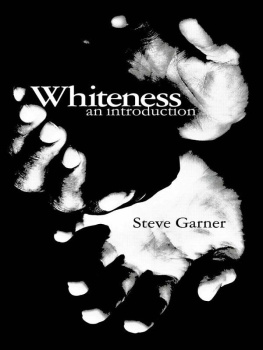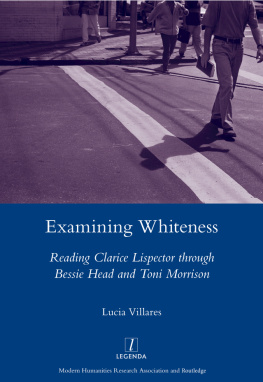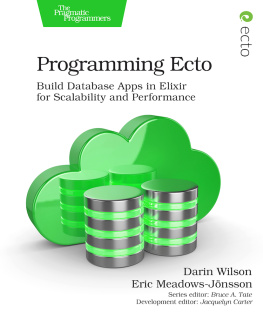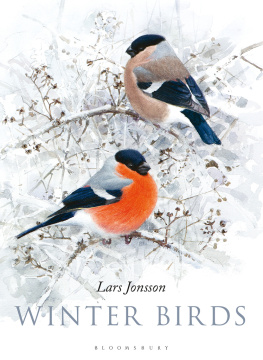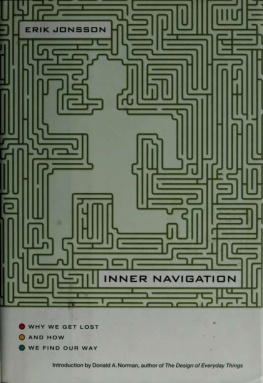Jonsson - Innocent Subjects: Feminism and Whiteness
Here you can read online Jonsson - Innocent Subjects: Feminism and Whiteness full text of the book (entire story) in english for free. Download pdf and epub, get meaning, cover and reviews about this ebook. year: 2020, publisher: Pluto Press, genre: Politics. Description of the work, (preface) as well as reviews are available. Best literature library LitArk.com created for fans of good reading and offers a wide selection of genres:
Romance novel
Science fiction
Adventure
Detective
Science
History
Home and family
Prose
Art
Politics
Computer
Non-fiction
Religion
Business
Children
Humor
Choose a favorite category and find really read worthwhile books. Enjoy immersion in the world of imagination, feel the emotions of the characters or learn something new for yourself, make an fascinating discovery.

Innocent Subjects: Feminism and Whiteness: summary, description and annotation
We offer to read an annotation, description, summary or preface (depends on what the author of the book "Innocent Subjects: Feminism and Whiteness" wrote himself). If you haven't found the necessary information about the book — write in the comments, we will try to find it.
Innocent Subjects: Feminism and Whiteness — read online for free the complete book (whole text) full work
Below is the text of the book, divided by pages. System saving the place of the last page read, allows you to conveniently read the book "Innocent Subjects: Feminism and Whiteness" online for free, without having to search again every time where you left off. Put a bookmark, and you can go to the page where you finished reading at any time.
Font size:
Interval:
Bookmark:
Innocent Subjects
Innocent Subjects
Feminism and Whiteness
Terese Jonsson

First published 2021 by Pluto Press
345 Archway Road, London N6 5AA
www.plutobooks.com
Copyright Terese Jonsson 2021
The right of Terese Jonsson to be identified as the author of this work has been asserted by her in accordance with the Copyright, Designs and Patents Act 1988.
British Library Cataloguing in Publication Data
A catalogue record for this book is available from the British Library
ISBN 978 0 7453 3751 7 Hardback
ISBN 978 0 7453 3750 0 Paperback
ISBN 978 1 7868 0342 9 PDF eBook
ISBN 978 1 7868 0344 3 Kindle eBook
ISBN 978 1 7868 0343 6 EPUB eBook
This book is printed on paper suitable for recycling and made from fully managed and sustained forest sources. Logging, pulping and manufacturing processes are expected to conform to the environmental standards of the country of origin.
Typeset by Stanford DTP Services, Northampton, England
Simultaneously printed in the United Kingdom and United States of America
My thinking and writing is fundamentally indebted to the work of the many Black feminists and feminists of colour which I draw on in this book. I want to thank and acknowledge all those who have been doing the often unrewarding and emotionally draining work of challenging and critiquing racism and whiteness within feminist theorising, politics and communities for a long time.
Throughout the process of research and writing, I have been incredibly lucky to have shared learning, friendship, support, despair and laughs with a number of amazing feminist thinkers and doers. Andrea DCruz, Anna Bull, rashn limki, Dyi Huijg, Naaz Rashid and Sarah Keenan have not only informed my thinking through their incisive and generous feedback on various versions of different chapters, but have also been great friends and colleagues. Ongoing conversations and collaborative scheming with Humaira Saeed have been central to the development of my ideas and analysis. Rashida Harrisons knowledge and shared enthusiasm for exploring the archives of Outwrite Womens Newspaper benefited my thinking about the papers political significance. Anna Feigenbaum and other members of the Feminist Activist Forums DIY feminist history group also informed my perspective on Outwrite s legacy for contemporary feminists. Conversations with Nydia Swaby enriched my understanding of the histories of Black British feminism. My analysis has also been influenced by conversations which started at the Feminist Complicities meeting in 2015 and continued from there, including in particular with Nadine El-Enany (in addition to people already mentioned above). Throughout the journey of my PhD and then writing this book, I have benefited from and appreciated intellectual and political discussions with members of the Gender and Sexuality PhD forum at London Metropolitan University, the Race, Ethnicity and Postcolonial Studies (REPS) postgraduate network, the Critical Edges organising group and event in 2019, the Citizenship, Race and Belonging (CRaB) research network, the Critical Pedagogies reading group, and the feminist reading group, the latter three all at the University of Portsmouth. I want to thank my students at Portsmouth for inspiration, in particular those who engaged with openness and thoughtfulness in conversations on my Equality or Liberation? Theorising Social Justice module. A number of colleagues at Portsmouth deserve mention for their kindness and care in the midst of a sector which encourages the opposite, in particular Joseph Burridge, Emily Nicholls, Naheem Jabbar, Sukh Hamilton and Rusten Menard.
This book grew out of my PhD research which I completed in 2015. My supervisor, Irene Gedalof, helped me, with great insight and patience, shape and carry out the research. I would like to acknowledge and thank my thesis examiners, Sara Ahmed and Sunny Singh, for their critical engagement with my work, which gave me ideas for how it could be developed. I also want to thank Nirmal Puwar, whose generosity, knowledge and wisdom as an educator greatly influenced my thinking and direction of scholarly travel during my MA in Gender, Culture and Modernity at Goldsmiths College in 200405.
Both the PhD and the book were a long time coming and there were times when it was doubtful that either were going to come at all. Many friends, older as well as newer, have provided steadfast encouragement, laughs and reality checks when I needed them. In particular, I want to thank Denise and Jackie Hales, Sam Stewart, Dan McMahon, Johanna Novales, Soley Mustafa, Leslie Barson, Sian Fletcher and everyone at Otherwise Living.
I am grateful for David Shulmans support for my work and incredible patience in seeing this book through to completion and I would like to thank him and everyone else at Pluto Press. I also extend my sincere thanks to the anonymous reviewers of the initial proposal and chapter, whose comments were incredibly helpful in refining and clarifying my arguments and the ways in which I communicate them.
My dad, Kurt Jonsson, passed away as I was writing this book, in March 2018. It is difficult to succinctly summarise the influence he had and continues to have on my life and my work, but I am particularly thankful to him for teaching me to think critically, to ask questions and to believe that things can be changed (even though we did not always agree on what questions need to be asked or what needs to change). I am grateful to my mum, Gunilla Jonsson, and my sister, Linda Forsberg, who have both been consistently supportive of me and my various endeavours and winding paths, and who continue to be an important part of home for me. Thank you to Natasha, without whose deep care, support and patience I would not be where I am today, and this book would certainly not have been completed. I also want to thank the Parker-Campbell-Hinton family for their generosity and openness. Special thanks go to my niece, Amiyah, and my nephew, Alex, for all the joy and creativity they bring into my life.
Finally, I do not have the words nor the space to fully describe the influence Lani Parker has had on me as a person and on my work. I can only thank her for her unwavering encouragement and love, her close attention to and feedback on various drafts of chapters, and for always challenging me to think deeper and act braver.
* * *
Some material in has previously been published in article form, as The narrative reproduction of white feminist racism, in Feminist Review , 113 (2016).
In a letter published in Spare Rib in December 1980, reproductive rights activist Jan McKenley writes of her frustration that most white feminists around her seem to have stopped caring about racism:
Im beginning to feel invisible again within the WLM [womens liberation movement], having to work myself up to making heavy statements that will embarrass sisters in meetings I can see the eyebrows going up already Not racism that old chestnut again its so boring. Well, if its boring for you, white sister .... Ive got no monopoly on dealing with racism its your problem too.
Noting that the topic had been trendy a year or two prior, McKenley describes being left feeling that racism was last years thing, urging her white sisters to take out the 1978 file again in order to remind themselves of the anti-racist arguments they should already know but appear to have forgotten. And if you dont take that file off the shelf, I hope it falls on your bloody head, so dont say you havent been warned! the letter ends.
Next pageFont size:
Interval:
Bookmark:
Similar books «Innocent Subjects: Feminism and Whiteness»
Look at similar books to Innocent Subjects: Feminism and Whiteness. We have selected literature similar in name and meaning in the hope of providing readers with more options to find new, interesting, not yet read works.
Discussion, reviews of the book Innocent Subjects: Feminism and Whiteness and just readers' own opinions. Leave your comments, write what you think about the work, its meaning or the main characters. Specify what exactly you liked and what you didn't like, and why you think so.

